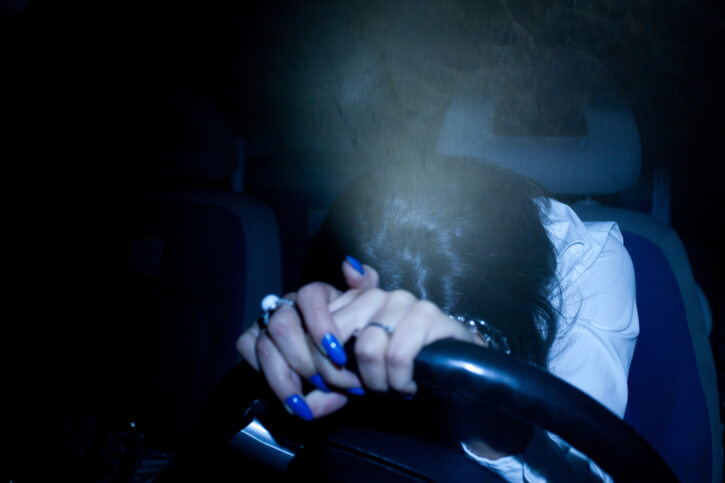
Stopped for DUI in Louisiana: 6 Things to Know
Louisiana is one of the toughest states in the country when it comes to repeat DUI offenders. Rather than wait for four or more offenses, a third DUI conviction within a 10-year period becomes a felony in the state. That means up to 5 years in prison, a fine of up to $2,000, a license suspension of 2 to 10 years and 30 days of community service. Beyond that, Louisiana law makes it possible for prosecutors to seize an impaired driver’s vehicle on a third conviction. It is common for prosecutors to order four months of inpatient treatment or 12 months of outpatient treatment as an alternative to vehicle seizure on a third conviction. A fourth DWI conviction in a 10-year period triggers a prison sentence of up to 30 years, a fine of up to $5,000, home incarceration of at least 1 year, a 2-year driver’s license suspension and vehicle seizure. It all starts with that first conviction.
If you are stopped for DWI in Louisiana, here are 6 things you should know.
1. Implied consent and sobriety testing
All drivers should know about the Implied Consent Law. This says that Louisiana drivers have consented in advance to a chemical test if requested by a police officer with probable cause to suspect DWI. The test – which can analyze blood, urine or breath – is usually taken at a police station after a driver has been arrested. Police officers often also ask drivers to submit to a field sobriety test. This is completely different and is not covered by the Implied Consent Law, according to DWI defense attorneys. There is no penalty for refusing the field sobriety test and attorneys generally agree the test is unreliable and can lead to false positive results with drivers who are nervous and unfamiliar with the test.
2. Refusing the chemical test
Because of the state’s Implied Consent Law, if a driver decides to decline a chemical test, they will immediately have their vehicle impounded and their driver’s license suspended. The penalty for violating Louisiana’s Implied Consent Law is a six-month driver’s license suspension. On a third refusal within 10 years, the penalty is a minimum of 2 days in jail in addition to the driver’s license suspension. In most cases, refusing the test doesn’t affect the state’s DWI case. Prosecutors will actually introduce your decision to refuse the chemical test as evidence of your guilt. DWI convictions with BAC results are not at all unusual. And in Jefferson Parish, the second-largest of the state’s 64 parishes, officials can get a warrant to forcibly draw your blood.
3. Expect to be on camera
It only takes an occasional look at the news to realize almost everything is recorded these days. The same is true with DWI stops. In fact, DWI attorneys recommend that drivers assume the stop is being videotaped and engage in very little conversation and remain inside the vehicle during the stop. Prosecutors will analyze the video and look for what they believe are indications of a driver’s impairment. Be polite and courteous to police, but there is no requirement that you answer questions about where you were going and what you have had to drink. Also, DWI defense attorneys say drivers do not have to consent to a search of the vehicle. If an officer orders you to get out of your, however, you should comply.
4. More than .08 to worry about
Did you know there are three different blood alcohol concentration (BAC) limits enforced in the state? The best known is .08, which applies to the bulk of adult drivers. However, some drivers can be arrested with lower BAC’s. For example, drivers of 18-wheelers, buses and other commercial vehicles can be arrested if their BAC is .04 or higher. The law is even more restrictive when it comes to young drivers. Anyone under the age of 21 is at risk as soon their BAC reaches .02.
5. DUI penalties in Louisiana
A driver convicted of a first offense DWI in Louisiana faces a driver’s license suspension of up to 90 days, a fine of $300 to $1,000 and a jail sentence of up to 6 months. A second conviction within a 10 year period triggers even stiffer penalties. Drivers will have their license suspended for 1 year, face between 30 days and 6 months in jail, a fine of up to $1,000 and 30 days of community service. Alcohol education or rehabilitation education can be included in the sentence for either a first or second offense conviction, at the discretion of the judge.
6. Total cost of a DUI in Louisiana
The fines and court costs related to your DWI conviction – up to $1,500 or more – are only part of the expense of a first DWI conviction in Louisiana, according to attorneys. You’ll need to reinstate your license for a minimum of $100, get your impounded vehicle – and each day adds to the cost – and pay $500 or more for alcohol education. That doesn’t include the two most expensive parts of a DWI conviction – attorneys fees and car insurance. An experienced DWI defense attorney could cost up to $10,000 or more and car insurance will double or triple in cost – $1,000 to $2,000 extra a year – and remain at that level for 3 to 5 years.
This article is for informational purposes only. If you need legal advice you should consult an attorney.